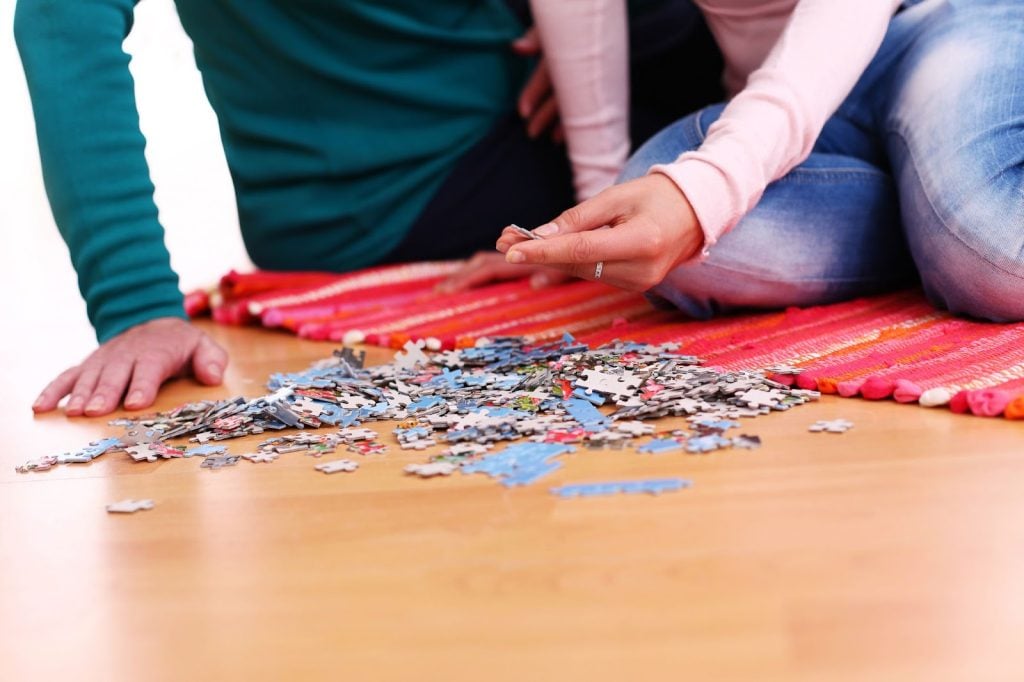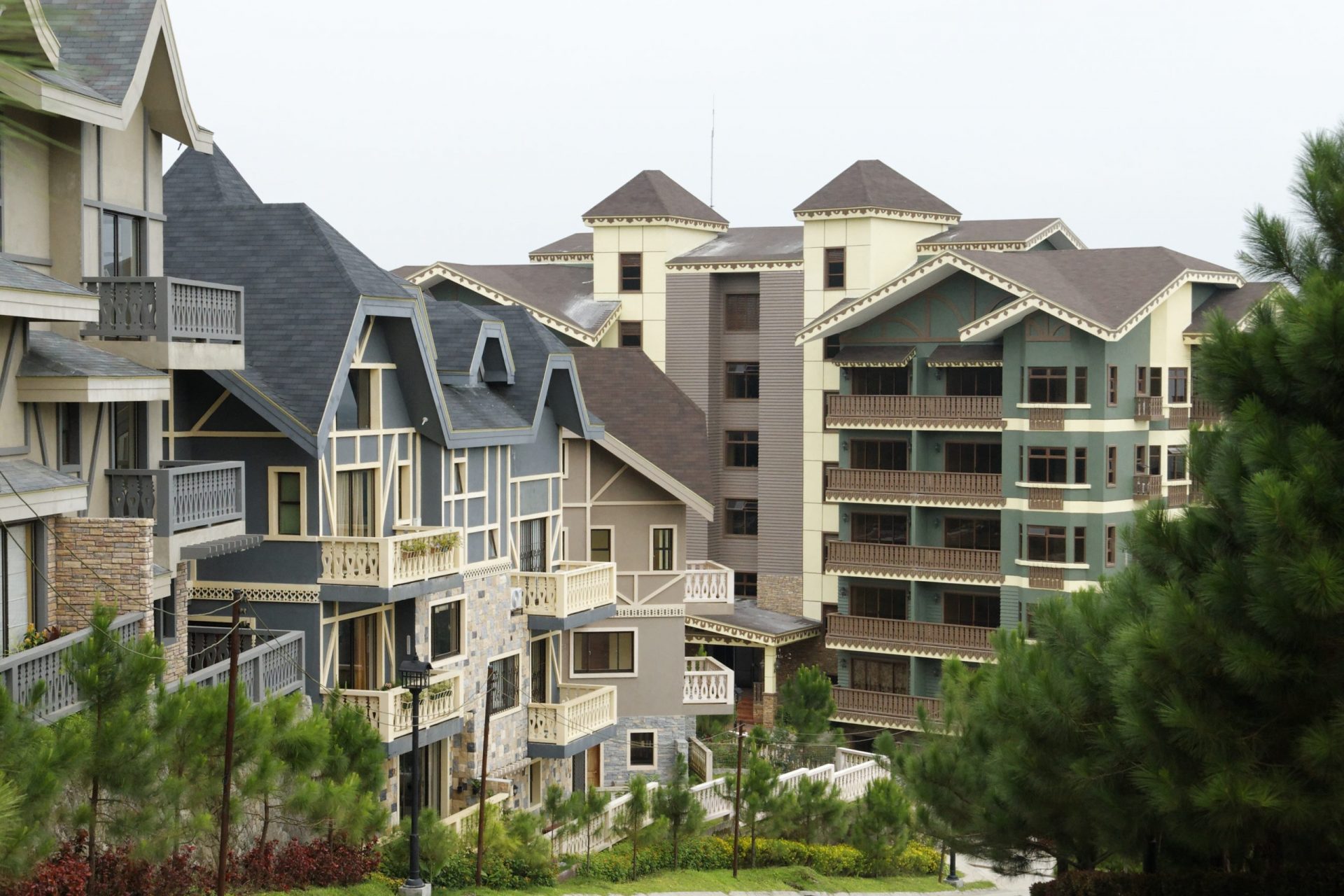BLOGS
Cognitive Benefits of Playing Puzzle Games
Keeping our brains sharp and active is a way to stay healthy amidst the bustling everyday lifestyle. There are many ways to put those neurons to work, and working on puzzles may be for you. Read on to learn more why playing puzzle games is good for you.
Why Do Puzzles Help the Brain?
Solving puzzles is not only a form of entertainment; it also has benefits for the mind, body, and soul – especially for the brain. The following are the benefits of puzzles for the brain:
1) Improves short-term memory
Short-term memory allows us to store information and ideas temporarily in the brain. Working on a puzzle effectively improves our short-term memory by reinforcing the connections between our neurons and improving our mental speed as we solve the puzzle.
2) Boosts your mood
Solving or completing the puzzle gives you that sense of success because of dopamine. Dopamine is a chemical released in the brain cells that regulate our mood, memory, and concentration. Once we solve a puzzle, our brain releases dopamine and improves our mood.
3) Makes it easier to unwind
Sometimes you find it hard to sleep at night, or you’re just passing the time once you run out of things to do. Puzzles are a great way to relax and unwind after a long day, so you’ll find it easier to cool down and fall asleep with a calm mind.
4) Improve visual and spatial reasoning
Since puzzles are all about solving what we see and how to complete the bigger picture, solving puzzles improves our visual and spatial reasoning skills. Looking at the individual parts and putting them together to form a picture lets us train our mental abilities.
5) Relieves stress
Life can sometimes get too much for you, giving you stress or overwhelming you. Doing a jigsaw puzzle, for example, puts your focus elsewhere as you solve the missing pieces, relieving the stress and worries you may have every day. Solving puzzles gives you that feeling of peace and quiet and teaches you how to focus on the task at hand.
6) Sharpens your logic and reasoning
Playing puzzles is not only a pastime; it also exercises our brains. Aside from improving our visual and spatial skills, it also sharpens our logic and reasoning. Puzzles such as crosswords, riddles, word searches, and jigsaw puzzles activate different brain parts to solve them logically and sensically. This hones the critical and analytical thinking skills for daily living.

How Do Puzzles Help with Cognitive Development?
In early childhood, playing puzzles not only gives a child an activity to pass the time, but also helps with cognitive development. Studies show that training a kid’s cognition skills benefits them later in life by having sharper minds, improved memory, concentration, and trained logical reasoning.
Puzzles help with cognitive development by:
- Learning the process of trial and error
- Following a pattern to solve the puzzle
- Understanding how the pieces fit with one another
- Seeing the differences among shapes and colors
- Helping them to learn how to concentrate on one activity
This results in better visual perception, spatial relations, logical thinking, and problem solving abilities. These are all important for early literacy and their performance in school. Puzzles are just one of the many ways to improve cognitive development in childhood.
Aside from improving and nurturing cognition, puzzles also train a child’s:
- Fine and gross motor skills
- Eye-to-hand coordination
- Attention span
- Independent play
- Interpersonal interactions when playing with other kids
Do Puzzles Help Cognition?
Puzzles are more than just a source of entertainment for anyone. Aside from keeping ourselves entertained, solving puzzles keeps the wheel turning in our brains and stimulates neuron connections.
Whether you are stuck at home with nothing to do or an elderly finding something worthwhile to do, playing puzzle games may be for you. Puzzles help in our brain health, especially in adults, by slowing down the decline of cognitive abilities, which may lead to dementia and Alzheimer’s disease. Regularly engaging in puzzle games help in cognition by:
- Keeping the brain mentally active
- Boosting memory, concentration, and thinking
- Putting you in a better mood
- Helping you to be more aware of what’s present
There are many puzzle games to train your brain each time constantly. The best puzzle to play is those with varying difficulty levels so that you can challenge yourself more every time you finish a level or a phase.

Best Puzzle Games for Your Brain
The following are the best puzzle games you can choose to play. These are accessible to find anywhere and are easy to follow once you start playing them. Keep on reading to find out which puzzles you can engage yourself in.
1) Jigsaw Puzzle
Playing jigsaw puzzles is a great pastime among classic puzzle games. Jigsaw puzzles exercise both the left and right sides of the brain, as they usually require logical thinking and creativity in solving them. Also, jigsaw puzzles come in different aesthetics, designs, and even art. You’ll get lost in finishing the jigsaw puzzle for hours when staying focused.
2) Crossword Puzzle
Another universally known puzzle is solving crosswords. You can test your vocabulary to improve your verbal skills while thinking logically based on the clues given. Studies show that crossword puzzles are among one the ways to delay memory decline for people who develop dementia later in their lives. Solving these games helps with language and vocabulary and concentration.
3) Sudoku
Sudoku is a puzzle game to fill the 9 x 9 grid with numbers 1 to 9 non-repeating in each row and column. Since many combinations are possible to fill the grid, this classic game helps with critical thinking and improving focus and concentration like crossword puzzles, but with numbers this time.
4) Rubik’s Cube
The world-famous Rubik’s Cube is also a puzzle game perfect for idling anywhere. Hungarian architecture professor Ernõ Cube invented the cube game to learn about 3-dimensional spaces in the 1980s. Today, it is now one of the most popular puzzle games that stimulate the mind with logic and abstract reasoning through the millions of possible moves to solve the cube.

Marvel Your Mind with the Puzzle Mansion
Found in Tagaytay City is a haven of the largest jigsaw puzzle collection in the world – the Puzzle Mansion. The Guinness Book of World Records recognized the collection as the biggest that exists globally in 2012.
Puzzle Mansion started as a breakfast and bed place in 2010. The same year the collection got recognized by Guinness, the mansion turned into a museum of 1,028 sets of solved puzzles. The museum consists of various 2D, 3D, and 4D puzzles, which the owner Gina Gil Lacuna assembled and completing them in more than 30 years before her death in 2014.
Visitors of the museum can look at the collection of solved jigsaw puzzles bought from all over the world – including the replicas of artworks by famous artists such as Michelangelo and Leonardo da Vinci. Found in the museum also is one of the biggest jigsaw ever, made up of 33,600 puzzle pieces completed in 1 year and 6 months.
Aside from touring around the museum, visitors can also buy merchandise and solve puzzles on their own while eating the museum’s famous unique coconut cream pie, best paired with Tagaytay coffee. Visit their Facebook page for more information.
Blow Your Mind Away with Crosswinds Tagaytay
In the highlands of South Luzon lies Crosswinds Tagaytay, where Brittany brings you closer to the tourist destination of Swiss Alpine mountains. The world-class luxury homes and amenities welcome you to the refreshing atmosphere of Tagaytay winds.
Just a two-hour drive from the Metro, Crosswinds is the perfect home for anyone seeking for a peaceful and quiet refuge from the bustling city life. Brittany brings you the lush home life on the natural slopes of Tagaytay with a wide range of homes to choose from:
Check the available property listings from Brittany for your liking. For questions about homes and living spaces available, go to this link or contact us soon for an appointment. You may also reach out here for other concerns and inquiries.
Suggested Read: The Importance Of Sleeping Habits During Quarantine
Suggested Read: Child Development Amenities For Luxury Homes
Suggested Read: Most Instagrammable Spots In Tagaytay
Suggested Read: Mental Exercises To Maintain Sharpness
Suggested Read: Luxury Living In Tagaytay















